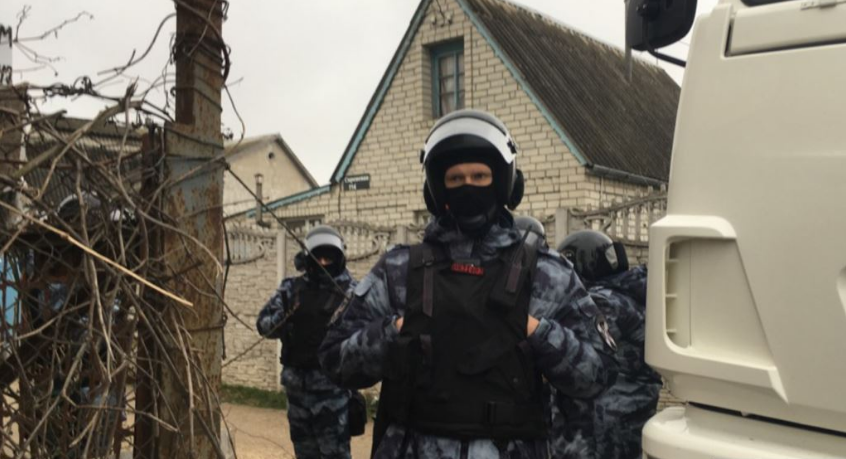Since the 2014 occupation of Crimea, the number of political prisoners in the peninsula has reached 331, as per the Crimean Tatar Resource Center.
The activists say that Russia uses its legislation for political purposes and conducts mass repressions against Crimean Tatars and pro-Ukrainian supporters in Crimea. Detentions and arrests have become a regular practice.
"From the very beginning of the occupation of Crimea, Russia began an active repressive campaign against the residents of the peninsula, including the initiation of numerous administrative and criminal proceedings against representatives of the indigenous Crimean Tatar people and pro-Ukrainian activists," they emphasize.
According to the Crimean Tatar Resource Center, individuals who can be classified as "political prisoners of Crimea, whose rights are restricted outside places of detention" are among those affected by the occupation of the peninsula. This category includes people subjected to various restrictions, such as probation periods, suspended sentences, administrative supervision, or house arrests.
Human rights defenders say that these restrictions are intended to the maximum level to complicate the lives of political prisoners after their release from jail. They face difficulties in finding employment, receiving medical care, and getting social benefits.
"Russia uses all the tools of its repressive machine for exemplary punishments for expressing pro-Ukrainian positions in Crimea," added the center.
Earlier, reports emerged that Russian authorities planned to install an anti-drone system worth nearly $1 million at the Artek children’s camp located on the southern coast of occupied Crimea.
Russia uses Crimean camp where children are taught to hate West as shield from Ukrainian strikes
Since Russia annexed Crimea in 2014, Moscow has turned the famous and luxurious camp into a training base for underaged members of the “Yunarmiya” – a militarized children’s formation funded by the Russian government. The occupying forces also have conducted 13 illegal conscription campaigns in Crimea since 2014.
Human rights advocates emphasize that the promotion of war and conscription into the occupying army constitutes a war crime under international humanitarian law.
- Occupied Crimea head creates private armies ahead of Ukraine’s offensive
- Top Russian official doubts regular army can defend occupied Crimea – UK Intel
- Majority of Ukrainians reject giving Donbas and Crimea to Russia, say reconciliation impossible – poll
- Russia to use Crimea as a launchpad to invade Ukraine again if Ukraine doesn’t take it back – Ukraine FM

